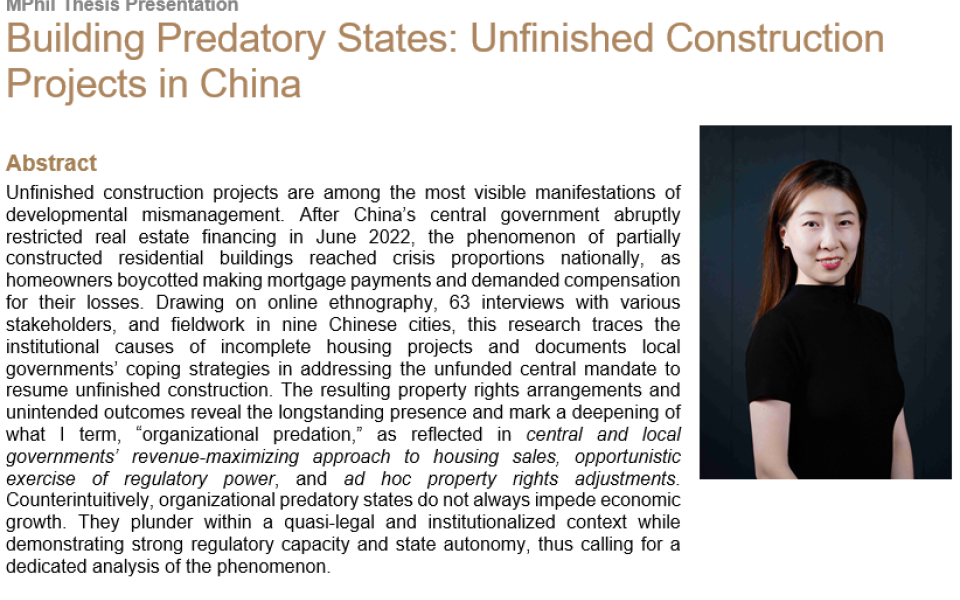Abstract
Unfinished construction projects are among the most visible manifestations of developmental mismanagement. After China’s central government abruptly restricted real estate financing in June 2022, the phenomenon of partially constructed residential buildings reached crisis proportions nationally, as homeowners boycotted making mortgage payments and demanded compensation for their losses. Drawing on online ethnography, 63 interviews with various stakeholders, and fieldwork in nine Chinese cities, this research traces the institutional causes of incomplete housing projects and documents local governments’ coping strategies in addressing the unfunded central mandate to resume unfinished construction. The resulting property rights arrangements and unintended outcomes reveal the longstanding presence and mark a deepening of what I term, “organizational predation,” as reflected in central and local governments’ revenue-maximizing approach to housing sales, opportunistic exercise of regulatory power, and ad hoc property rights adjustments. Counterintuitively, organizational predatory states do not always impede economic growth. They plunder within a quasi-legal and institutionalized context while demonstrating strong regulatory capacity and state autonomy, thus calling for a dedicated analysis of the phenomenon.
